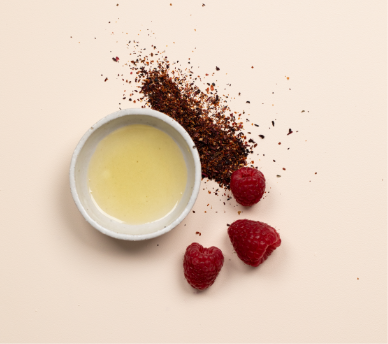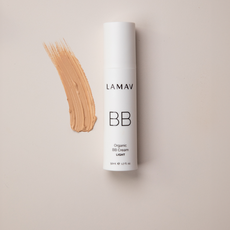Itching and irritation can affect a small area of your skin or your whole body. While usually not serious, it’s important to seek medical advice if the irritation is severe, you are feeling unwell or have a medical condition.
WHAT CAUSES SKIN IRRITATION
When looking to treat a skin concern, it’s important to determine the cause of the problem. Below are some common causes of skin irritation and how to identify them.Dry skin
Dry skin can lead to itchy, irritated skin. Changes in seasons, environment or skincare can cause dry, flaky skin. If left untreated, dry skin can lead to a damaged skin barrier which leaves you open to more serious skin conditions such as eczema, rosacea and sensitivities to different products. In some cases your skin can even become infected!Hives
Hives often show as a raised, bumpy rash. It can be red or similar to your skin colour and is usually very itchy. Often appearing on the the chest, abdomen or back, it can last from a few hours to a couple of days. Hives is most commonly caused by an allergy, but it can also be caused by viral infections.Heat rash
Showing as pink or red spots, this type of skin irritation can appear anywhere on your skin and is very common in babies. Excessive exercise, sweating and wearing the wrong type of clothing can lead to heat rash.Eczema
Eczema causes itchy, red, scaly patches on your skin and can appear anywhere on the body but most commonly shows in skin creases such as behind the knees, elbows, hands and wrists. Eczema is common in children and often runs in families who are prone to allergies, hay fever or asthma.There are up to 7 different types of Eczema, with the most common being atopic dermatitis. Other types of eczema include:
- Seborrheic Dermatitis - often develops in areas of the body that produce more oil such as the scalp, upper back and nose. Cradle cap in babies is a type of seborrheic dermatitis.
- Contact Dermatitis - a rash develops when your skin comes into contact with an irritant
- Neurodermatitis - generally manifests as one or two itchy patches that that escalate in itchiness.
- Stasis Dermatitis - usually caused by poor circulation in the lower leg area, swelling, redness and dry skin can develop around the ankle and lower leg area.
- Nummular eczema - irritated patches of skin that can become oozy and treatment is often required to avoid infection.
- Dyshidrotic Eczema - often characterised by itchy skin on the palms of the hands and soles of the feet that can lead to blistering.
Here are Some Natural Ways To Soothe Irritated Skin
1. ALOE VERA
Used for medicinal purposes in several cultures for centuries, Aloe Vera is “the plant of immortality”, according to Ancient Egyptians. Now used as a remedy for skin irritation, dry skin, sunburn relief and as a hydrating ingredient in skincare formulations, it has an incredible ability to retain moisture and soothe the skin. Rich in skin-loving nutrients including Vitamin A, C and E, its antioxidant rich and anti-inflammatory properties make it excellent for soothing irritated skin and healing wounds.Don’t just take Cleopatra’s word for it, recent studies on wound healing found that Aloe Vera significantly accelerates wound healing (particularly for burns) and has been shown to strengthen the skin barrier, making it more resilient against irritants.
Find this hero ingredient in LAMAV’s Hydra Calm Cream Cleanser. Our ultra-rich cleansing cream is formulated with Aloe Vera Leaf Juice and Chamomile Extract along with Avocado and Camellia Oil to soothe and calm irritated skin as you cleanse. The addition of Essential Fatty Acids from Açai Oil also assists to repair stressed skin while providing comfort for dry, irritated skin.
2. CHAMOMILE
Chamomile is well known for its calming, soothing and anti-inflammatory properties and is a popular drink of choice prior to bed to calm the body and mind before you attempt to get some shut eye. Topically, its antibacterial properties also make it beneficial for calming oily and acne-prone skin types.Studies have shown that chamomile’s strong anti-inflammatory and antimicrobial properties can enhance skin barrier function and reduce symptoms of dermatitis such as redness and irritation. Chamomile can be applied in various forms, from essential oils, tea compress and through topical skin care application.
3. BISABOLOL
Derived from chamomile, bisabolol has shown to calm and soothe irritated, inflamed skin. Its rich antioxidant profile makes it useful in the protection from free radical damage and oxidative stress, while also reducing the visual signs of ageing. Bisabolol has also been studied clinically in terms of its benefits in lightening the skin and reducing hyperpigmentation.Calm irritated skin with LAMAV’s Hyaluronic Moisture Cream. Formulated with Bisabolol, Hyaluronic Acid and Emu Apple to boost and lock in hydration while soothing and calming irritated skin. Your skin will enjoy instant relief with the addition of Aloe Vera, Amla and Sandalwood Seed Oil to calm inflammation and nourish the skin.
Looking for more intense skin repair? Try our Beauty Sleep Mask to deeply hydrate, repair and calm the skin while you sleep. Bursting with skin soothing bio actives such as Hyaluronic Acid, Bisabolol and nourishing oils, you’ll wake up with calm, plump skin.
4. COCONUT OIL
Coconut Oil has become a popular household ingredient for various skincare and cooking uses, and for good reason. Studies surrounding dermatitis have highlighted coconut oil’s effectiveness in improving skin hydration and relieving symptoms for those suffering from skin inflammation. Well known for its intense moisturising properties, it also contains high levels of auric and capris acid, providing antibacterial and anti-inflammatory relief to dry and irritated skin.5. OMEGA ESSENTIAL FATTY ACIDS
Natural oils are an excellent option for treating dry and irritated skin, thanks to the high content of essential fatty acids, vitamins and minerals. They help to replenish the protective barrier of the skin, reducing the risk of allergic reaction and inflammations caused by external factors.Repair and soothe your skin’s barrier with LAMAV’s Omega 3, 6, 7 & 9 Antioxidant Oil. Containing 100% pure actives, this essential fatty rich oil instantly provides comfort to dry skin while strengthening and repairing your skin’s barrier to reduce and prevent further irritation. Containing Chia and Açai Oils to nourish the skin and shield against environmental damage, you’ll enjoy calmer skin and age defence in one.
Incorporate Rose Water into your daily skincare rituals with LAMAV’s Rose Hydrating Mist Toner. Containing a potent blend of skin soothers including Rose Water and Aloe Vera, you’ll also enjoy the benefits of brightening Kakadu Plum and Hyaluronic Acid to hydrate and plump the skin. Native extracts including Davidson Plum deliver a rich source of phytonutrients to boost antioxidants and protect the skin from oxidative stress. Use LAMAV’s Rosy Hydrating Mist Toner after cleansing to calm, hydrate and balance the skin’s pH and re-apply as needed throughout the day to deliver all-day hydration and refresh your skin, keeping it calm and glowing all day long.
6. Rose Water
Rose water (also known as rose hydrosol) has been used by women all around the world for centuries and it is among the oldest and the most well-known natural beauty elixirs.
Rose water has soothing, calming and hydrating properties and is believed to aid wound healing. Rose water contains anti-inflammatory bio-active compounds, antioxidants and minerals that aid skin regeneration and provide immediate comfort.
Pro Tip: For extra cooling sensation, keep a bottle of rose water in the fridge.
7. Natural Oils
Natural vegetable oils are excellent for treating dry/irritated skin, thanks to the high content of essential fatty acids, vitamins and minerals. They help in replenishing the protective lipid barrier of the skin and maintaining its integrity, therefore reduce the risk of allergic reaction and inflammations caused by external factors.
According to experts, the best oils for sensitive skin are Evening Primrose oil, Jojoba oil, Hempseed oil and Tamanu oil. Their unique nutrient-rich composition and anti-inflammatory effect make them ideal for soothing and healing the skin.
8. Oatmeal
Oatmeal is not just a great breakfast choice - it can benefit your skin in many ways and is particularly good for those of us who struggle with sensitive skin. Rich in natural lipids, proteins, sugars and bioactive substances (one of which is the anti-inflammatory compound avenanthramide) oatmeal immediately soothes the skin, reduces redness and itching and helps restore moisture balance.
The most popular way to use oatmeal is the so-called "oatmeal bath". It may sound like a fancy spa treatment, but it's pretty simple. All you need to do is put 2 cups of uncooked oatmeal in your bathtub (preferably in a small cotton bag, to avoid having to clean the mess later) and leave it there for 20-30 minutes.
Alternatively, you can use oatmeal as a mask - mix 3 tbsp. uncooked oatmeal with some water, leave it for an hour and then apply the mixture to the irritated area.











